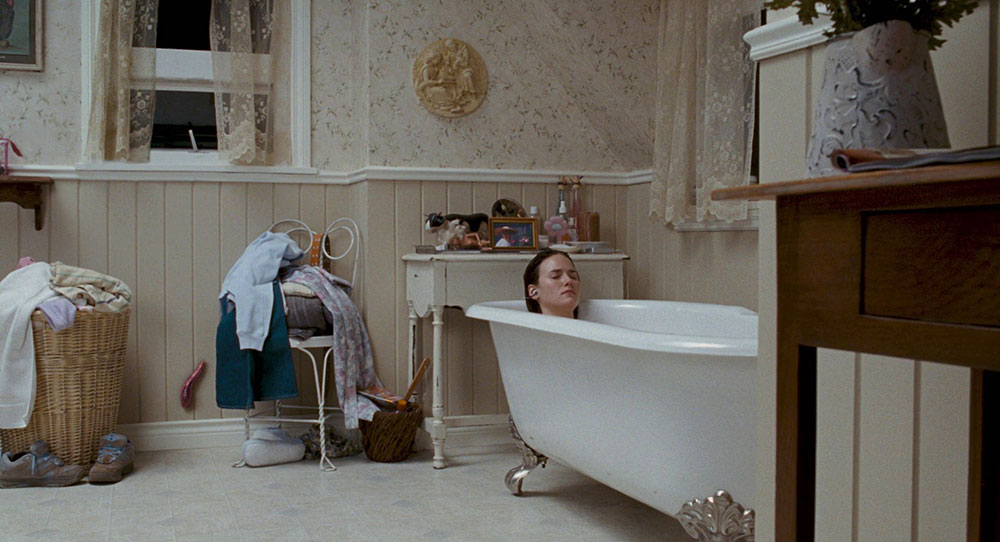The Darwinism of horror trope is such that, every so often, a woman will be menaced in a bath tub again. From Hitchcock to Craven: the set piece persists as if by natural selection, its traits well-suited to reproducing scares. In Slither (2006), it emerges as an extraterrestrial slug. But unlike David Cronenberg’s Shivers (1975), from which the scene evolved, this wriggling spermatozoon aims only for its victim’s mouth. “What kind of thing wants you to eat it?!” Mayor MacReady, named after Kurt Russell’s character in The Thing (1982), wants to know. This kind: a crash-landed parasite with the developed ability to propagate via brain worm. As disgruntled husband Grant Grant (Michael Rooker), the alien’s primary host, promulgates the infection and his own consciousness via priapic tentacles, he can’t see why his biology-teacher wife (Elizabeth Banks) should take umbrage. After all, he explains, it’s in his nature.
Creature fear, penis monsters, the buzzy self-sufficiency of groupthink: all these are in writer-director James Gunn’s nature, too. In his directorial debut, the future Guardians of the Galaxy helmer milks postwar cheapies and sincere ’80s spoofs, plus Junji Ito, for strands of DNA. Bolstered by superfine practical effects, the film revives a substantive squick that had begun to seep from the genre with Hollywood’s digital turn: Air bladder abdomens burst. Acid pea-soup sprays. The bathtub slug snap-crackle-pops. Spilled, its guts are the satisfying splooge of an overstressed stress toy, or a petroleum-based dildo—indeed, most of the prostheses comprising Grant’s increasingly prickish body are made of the latter. Slither in a nutshell: always, but then never quite, The Thing itself.
What kind of thing wants you to eat it? The kind that wants you to get it. When the slug makes contact with our bather’s soft palate, she is briefly indoctrinated into its epochal genealogy, which plays out like the Troma film running on another townie’s TV. An alum of those good purveyors of schlock and awe, Gunn is clearly interested in regurgitating his own creative evolution. Horror is always a cannibalizing genre. But when Slither over-cites its canon, or peevishly anticipates some future fan’s call-and-response (Nathan Fillion’s hero cop, when faced with almost anything: “Now that is some fucked up shit.”), it can feel like being starved out. An intimate understanding of hive mind as formal structure is perhaps what made Gunn a good fit for the Marvel Cinematic Universe.
Fortunately, there are ways to connect with Slither that don’t require deepthroating an entire geekdom. As Grant finally spills out the doors of his home, a writhing mucoid mass, other infected citizens join him in the least demanding way possible. Snuggling naked into his pinky appendages, they become a remarkably cozy broil of symbiotic flesh. The primordial ooze is everywhere, and it’s made of freaking dildos. Sometimes, it’s the easiest thing in the world to give in to the goo.
Slither screens this Wednesday, January 10, at the New Parkway Theater as part of the series “Horror Closet.”



